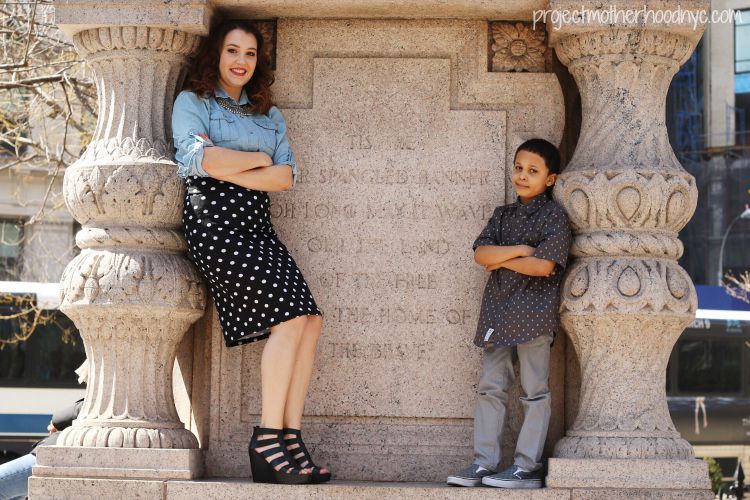These impactful conversation starters will get your kids thinking and learning.
I know that we aren’t always able to get everyone around the dinner table at the same time every night, but even just one or two nights a week makes a huge difference. I’ve spoken with so many mamas who have revealed to me that one of the best outcomes of being quarantined due to COVID-19 is the fact that their family has all been together at mealtime. It’s time to use that time together for more than just connecting with one another, this is where we need to start age-appropriate conversations with our kids to make sure they grow to be inclusive children.
In today’s diverse and interconnected world, raising inclusive children is more important than ever. Children develop their values and perspectives through everyday experiences, and one of the most powerful yet often overlooked opportunities for shaping their understanding of inclusion happens right at home—around the dinner table. These conversations provide a safe space for children to ask questions, express thoughts, and learn about the experiences of others in a meaningful way.
RELATED: Why Raising Kids Not to See Color Is Problematic
Dinner table discussions can serve as a foundation for teaching children about empathy, respect, and the value of diversity. Whether through stories, current events, or personal experiences, parents can use mealtime to encourage open dialogue about race, gender, ability, culture, and other aspects of identity. By fostering these discussions, families can create an environment where children feel empowered to challenge stereotypes, embrace differences, and stand up for fairness.
Research shows that children develop biases at an early age, often mirroring the attitudes and behaviors they observe in their surroundings. Engaging in intentional conversations about inclusivity can help counteract these biases by exposing children to different perspectives and encouraging critical thinking. These discussions don’t have to be formal or forced; they can be as simple as talking about diverse characters in books, discussing fairness in school settings, or reflecting on real-world events in an age-appropriate way.
By making inclusivity a natural part of everyday conversations, parents and caregivers equip their children with the tools to become compassionate and socially conscious individuals. The dinner table, often a place of connection and learning, can be transformed into a powerful setting for raising children who celebrate differences and advocate for a more just and equitable world.

5 Impactful Dinner Table Conversations For Raising Inclusive Children
Now I’m not perfect or an expert, but I do know the impact that quality family time has on my family and I. Here are some conversation starters that are wonderful starting points for the big conversations that will promote anti-racism, diversity, and inclusivity.
1. Ask: What was something new you learned about a friend today?
Teach: How much learning new things about others brings us together.
RELATED: How to Be An Ally To The Black Community Right Now
2. Ask: What is something you have in common with a friend that surprised you?
Teach: We all have differences, but also have common bonds, too.
3. Ask: What is something you have heard on the news lately that concerns you?
Teach: This is great for older kids and a wonderful way to dig a little bit deeper and explore their emotions. Use the news as as starting point to teach things about what is going on in your child’s world, ways they can get involved and help, and address anything that may be bothering them.
4. Ask: What is something that you did this week that was kind?
Teach: Kindness should always be on our children’s brains and this is a huge part of making sure that they are including everyone. I used to ask Branden this every single day whenever he got off the bus in NYC and really need to bring this tradition back.
5. Ask: If you could meet someone who spoke a different language and lived in a different country, what are a few things you would ask them?
Teach: Taking an interest in people who might be different from them.

Additional tips that help to raise inclusive kids:
- Model the behavior that you want to see in your children
- Make sure they understand empathy at a young age
- Always promote kindness
- Be open to having the big discussions and don’t shy away from the hard questions
- Expose your children to different experiences and people (I loved how the kids were exposed to so much on a daily basis when we lived in NYC, and we have to broaden their horizons now in different ways.)
- Always emphasize that while people are different, we all still have so many wonderful similarities
- Make sure that you are intentionally seeking out teaching moments
Looking for more real mom life tips? You’ll love these:
- How to Talk to Your Kids About Racism At a Young Age
- 5 Things I Refuse to Apologize For as a Toddler Mom
- The Lazy Moms Guide to Potty Training
- 5 Things I Learned When I Became a Mom of Two
- 5 IMPACTFUL DINNER TABLE CONVERSATIONS FOR RAISING INCLUSIVE CHILDREN
What dinner table conversations are you and your family having right now?
Before you go! Don’t forget to subscribe to our newsletter for more honest motherhood, wellness tips, and fashion guides. I also provide extra coupon codes, giveaways, and surprises for my private list!
XOXO,
Allison







